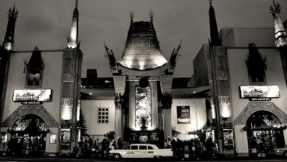After the Rise and Fall of the Studio System, Could We Use it Today?

The entertainment industry is evolving more quickly than it ever has, and film production companies and distributors are of no exception. Just like the advent of television had a major influence on the sharp decline of movie patrons in the 1950s and 60s, the advent of on-demand and streaming “television” and movie content today is having a major impact on entertainment sources today. But this article does not aim to analyze distribution, production, nor revenue; its aim is to analyze the state of employment opportunities in the film and narrative television industries. What better way to begin to explore this controversial topic than with the studios that started it all.
History

The rise and fall of the former “studio system” lasted for a period from the 1920s to the late 1960s, with the 1940s to the 1960s being the period of the downfall. During this time, there were five major film studios known as the Big Five, essentially controlling the film industry from production to distribution. The Big Five consisted of Paramount, MGM, RKO, Loew’s, Fox Pictures, and Warner Brothers. Though not as prominent, three smaller studios known as the Little Three, consisting of United Artists, Universal, and Columbia Pictures, were the chief competition. Regarded as the end of Hollywood’s Golden Era, the landmark Supreme Court decision in United States v. Paramount in 1948 marked the delcine of the Studio System. In short, over about a 15-20 year timespan, studios began opening their lots to independent filmmakers–independent of the Big Five (not independent by today’s definition), terminating permanent staff members, and refraining from entering into longerm contracts with performers and movie houses. Although the Walt Disney Company was not part of the Big Five nor the Little Three, it is the only studio today still operating as a studio from the old Studio System.
Present Day

With the major studios today only producing about 20 films a year, the majority of films releasing in first-run movie theatres are produced by independent producers. As stated earlier, this is not independent as we think today; independent by this definition means movies produced outside of the major studios, but often distributed by them (or a subsidiary). Think: Star Wars or Jurassic Park. Since the fall of the Studio System, big banks are more reluctant to invest in or finance films, so producers are responsible for securing their own funding. Less funding means fewer job opportunities for film and television graduates. Most film and television professionals in the entertainment business today are independent contractors–being attached to films and television shows for however long the production time or run-length is. Although a long-running television show provides more employment stability than films do, both are high risk professions. Of course, along with the high risk comes potentially great rewards.
Why would the return of some semblance of the old Studio System be a good turn of events in today’s economy? Simply stated: more jobs and opportunities for budding professionals and college graduates. Why is that? Any first-year film student can tell you that studios keep a low threshold of permanent staff members in administration and production. The majority of talent and crew on each film is independently contracted. And with gaining entry into a union becoming increasingly difficult, it leaves many potentially talented professionals out of work or in low-pay positions on low and moderate budget films. If the Studio System were to return, they would have the collateral that big banks are looking for to invest in films. After all, film, television, and to some extent theatre, are the United States’ largest exports even though they are only recently counted as part of the U.S.’ GDP (gross domestic product) in terms of evaluating the health of the economy. If there were more permanent positions in production with studios and production companies, the unemployment rate would drop significantly in entertainment because budding professionals and college graduates could land positions in which they could grow and excel.

But what about exploitation and monopoly? Are those not reasons why the Supreme Court stepped in? Yes. However, there are many reasons why personnel in entertainment today, as permanent staff members, would not undergo the same treatment. The reason: unions. SAG-AFTRA, IATSE, TEAMSTERS, and EQUITY do an excellent job at protecting creative peoples’ rights and opening doors of opportunity. But, it is becoming increasingly difficult to gain access into these organizations. And with the unions being the gatekeepers to opportunity in the industry, where is a budding professional or college graduate supposed to go? If studios produced more in-house movies and television shows, then that would require them to hire permanent staff members. Those seeking a career in the industry would find their place. Some may argue that production companies offer internships to recent graduates; but with lawsuits increasing in the last few years, internships are increasingly being seen in a negative light. One hypothesis is that unpaid internships are taking the place of entry level jobs. With the number of entry-level jobs decreasing since the recession began, the unemployment rate in entertainment is rising.
One way to combat the increased unemployment in entertainment business is to bring back the large studios that have the financial assets to offer and hire permanent positions. This would enable the studios to hire a number of cinematographers, writers, directors, etc. And, those individuals would work on the films produced by the respective studios. If studios were to increase the number of films produced each year, as they once did, then there would be more opportunities for professionals. Regarding the monopoly studios had on movie houses, the present laws on the books would not allow for a studio to have complete control over a particular theatre chain.
There is plenty of room for studios and production companies large and small. Unlike the days of the Studio System, in which outside companies could not shoot films or television shows on another company’s lot, the smaller studios should be allowed to still rent the stage and lot space as they do today. Of course, if Studios were producing more movies on their lots, that may cause the smaller companies to have to look elsewhere for locations. But, that could be a good thing; because if they purchased land for a backlot or sound stages, that would create more jobs for craftsman. In order to combat the rising unemployment rate in the entertainment business, professionals need to get together to develop ideas as to how to hire more personnel. Bringing back the Studio System is just one idea as to how to create more full-time jobs in film and television production.

With studios forced to produce more movies in order to make payroll, that could potentially mean more writers can sell their scripts and perhaps more original ideas will make their way to the silver screen. This action could create human resource databases at the various studios and production companies that would advertise vacant positions. Just like applying for a job at Disney World, you could see what positions are available. Bringing back a new Studio System would allow for studios to advertise full and part-time regular positions. For instance, you could see which studios are hiring cinematographers, directors, composers, etc. Professionals in the creative and technical arts would also benefit from employer provided health insurance and retirement. Although as independent contractors, film and television professionals make more money than working as a regular employee, regular employees benefit from regular paychecks and benefits, and to an extent job security.
Technology is making the production of movies and television shows more efficient than ever, so a major studio could hire permanent staff members to work as producers, directors, screenwriters, cinematographers, etc. Employment opportunity and stability are key elements to the health of an industry–even creative ones. Even though the old Studio System ran unchecked for many years, causing the eventual breakup, carefully constructed and regulated today, the return of a new Studio System could mean more jobs and opportunity for college graduates pursuing entertainment business careers. And just maybe, more movies!
Works Cited
1. US adds entertainment and innovation to GDP, Time Magazine, http://entertainment.time.com/2013/08/01/hey-america-entertainment-just-made-you-hundreds-of-dollars-richer/
2. History of the Studio System, Encyclopedia Britannica, http://www.britannica.com/EBchecked/topic/394161/history-of-the-motion-picture/52153/The-Hollywood-studio-system
3. Paramount Pictures v United States, 334 U.S. 131 (1948)
4. Glatt v. Fox Searchlight Pictures, New York Southern District court, http://www.nysd.uscourts.gov/cases/show.php?db=special&id=300
5. US Bureau of Labor Statistics, http://www.bls.gov/ooh/entertainment-and-sports/home.htm
6. Glatt v. Fox Searchlight Pictures Inc. 2013 WL 2495140 (S.D.N.Y.) – See more at: http://blog.legalsolutions.thomsonreuters.com/legal-research/westlaw-topical-highlights-labor-and-employment-july-10-2013/#sthash.J9tcpnM1.dpuf
7. Hollywood Studio System Collection, http://mediahistoryproject.org/hollywood/
8. Bigelow v. RKO Radio Pictures, Inc., 327 U.S. 251 (1946)
What do you think? Leave a comment.











Very insightful piece we have here, thanks for the read.
“Simply stated: more jobs and opportunities for budding professionals and college graduates. Why is that? Any first-year film student can tell you that studios keep a low threshold of permanent staff members in administration and production.” This line sent a tear to my eye. However I cannot help but wonder what your thoughts are on what this would mean for actors?
If I can recall correctly the studio system also kept actors working with certain studios and – if I am correct – simultaneously existed during the star system. While there are still actors that have been exploited for a specific image, look, and “star quality” I cannot help but wonder how much unions would do to prevent this from happening in a studio system.
Also, working with a certain studios can be rather limiting, while I love the idea over all as someone who wants to go through the grueling process of endless rehearsals, 2 AM shoots, quick line-learning, and everything else that goes along with acting in films, what are your thoughts on an actors role in the hypothetical reawakening of the studio system?
I can see you address this in regards to the need to produce more films per year, but I guess I just feel skeptical.
This then brings in my last question. Hierarchy. If, as you say, it is difficult to break into the business because you first have to get into a union, wouldn’t a return to the studio-system add another layer of hierarchy? That is, if getting into a union is required to get into the business now, would it still exist to join a studio? Or would joining a studio then lead to joining a union?
Just some thoughts. I’m about to graduate with a B.A. in Theatre, Film, and Media Studies (Theatre focus) and English so I’ve been panicking about one day becoming a part of this world and how to approach it.
Excellent questions! I’ll address them in order. You asked about what a reawakening of the studio system would mean for actors. You are correct in that the scope of what an actor in the studio system would do is limiting. However, I think many actors would take limiting REGULAR work over artistic, groundbreaking IRREGULAR work any day. There will always be exceptions, just like there is now. Some actors will get starring roles more regularly than others. But, working for a studio, on salary, would mean getting a paycheck every week for what ones loves to do–act. If an actor was more concerned with being able to express themselves artistically more than wanting a “job,” then they should continue to freelance themselves as they do now. It boils down to what is more important to the actor: regular acting work with a salary and benefits, or the ability to customize ones own future by freelancing.
Regarding the studio system, unions, and hierarchy, I feel as though that will not be an issue. I am a former Cast Member from Disney World. Working for Disney World (and TWDC in general), Cast Members are mostly permanent staff members (except for those who are seasonal) whose rights are determined by collective bargaining agreements. Constructed the right way, in a new studio system, the unions would work with Studio XYZ to develop fair worker treatment standards. Like: how long a staff member can work, guaranteed number of hours and pay, how they accrue time off, discipline actions, etc. That way, an actor, producer, camera operator, etc would not be overworked, yet paid regularly, and not able to be fired on a whim.
People would be able to get into a studio by applying for jobs like in other industries. In a new studio system, one could log on to the respective website and see how many openings there are (camera operators, writers, directors, etc) and apply with a resume/headshot or reel. Once employed, then the worker would have the freedom to sign with a union or not–just like in many industries. The workers would be treated according to the collective bargaining agreements. But those not in the union would not have the employment protection a worker in the union has (in terms of discipline mostly). So, in short, one would be hired by the studio then join a union–not the other way around. Essentially, studios would rely more on human resources for evaluating applicants than a union. But, the candidates would be vetted in the interview process.
My Bachelors degree is in Film and my Masters is in Media Studies (finish next year). My research area is internships in entertainment media, so I have done extensive research into labor and entertainment. You’re welcomed to read my research when I am done with it. I feel that we need to fix the entertainment system in such a way that creates jobs and build opportunities for budding professionals and graduates. Hope this info was helpful!
I learned about the studio system in my Mass Media and Society class. Your piece really went the extra mile to provide readers with adequate information for understanding. Although I’m not going into Film and I’m generally rather uninformed to employment in the field, I feel like you have a with reestablishing the old studio system to increase job opportunities!
I learned about the rise and fall of the studio system in my intro to film class during my sophomore year of college.the main thing I remember was the control that these studios had over their actors. This article was very insightful and a great read it just made me remember all the open discussions we had in film class which were really fun.
Interesting read! I think we’re definitely moving away from the studio system, which did have its benefits, as mentioned in the article. It’d be hard to re-implement, but when people do their research on the old system they can pick and choose which aspects to incorporate in our new age of production.
The industry is definitely moving away from the old system. But, I cannot help but think that if it were to go back to more of an “in house” studio, that more jobs could be created from college graduates.
I don’t know. The old studio system was based more on an apprenticeship model.
Great write-up, I took an intro to film class as a junior and I learned a great deal about the film industry, your article definitely takes it further! The studio system in its time worked but I’m not sure it would work these days. I see the points you have made about why it would be a good thing but I am on the fence about it working if they ever did decide to bring it back. The reason being is that I think the studio system is far to limiting. I read the comment about why you said it would work but ever since learning about it in film class, I have never like the idea of it. I suppose its because of the way that it used to work (or at least the way it was explained to me) is that you work for a studio, you do what they tell you, you write what they want you to write, you make the films they want you to make and those are the rules. If it did come back and they modernized it I think it would be a great idea for those working in the film industry to have the opportunity to have steady jobs, actors, directors, writers, etc. I’m a writer myself I have a degree in journalism and I also write screen plays on the side and something like a new studio system with all the modern changes would be nice to have! Those are my thoughts on it! 🙂
It depended on what studio you were contracted to. Some were more democratic than others.